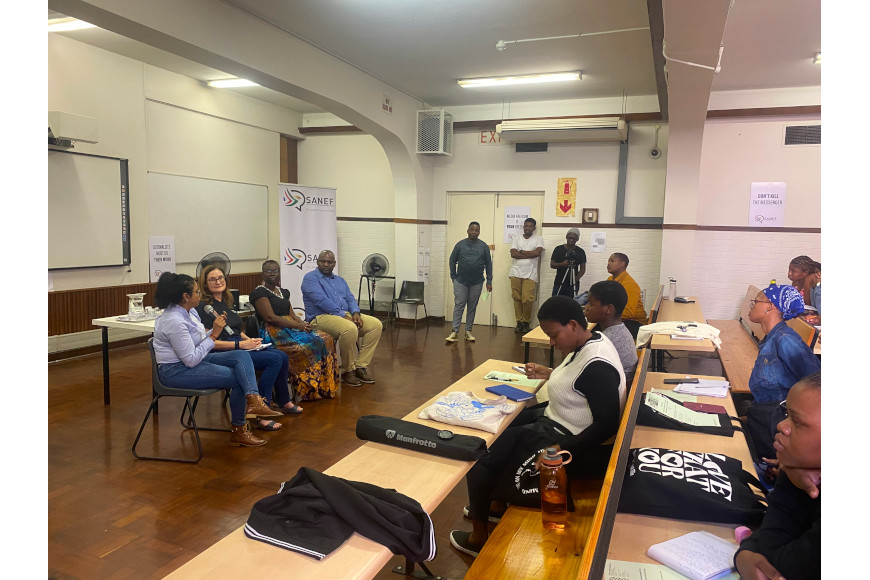The third of May marks an important day in media and journalism space. As declared by the United Nations, May 3 is World Press Freedom Day. A day dedicated to celebrating the importance of journalism and freedom of expression. The theme for this year was, ‘A Press for the Planet: Journalism in the face of the Environmental Crisis.’
The Journalism Department at the Durban University of Technology (DUT) celebrated this annual event by hosting a seminar. Panellists included reporters from the South African Broadcasting Corporation (SABC), Minoshni Pillay and Mlondi Radebe, Judy Sandinson from the South African National Editors Forum (SANEF) as well DUT Journalism Senior Lecturer, Dr Theodora Adjin-Tetty.
SANEF’s Judy Sandison spoke on the importance of countering mis and disinformation in the media and with the 2024 General Elections approaching, conversations around mis and disinformation as well as media freedom are gaining a lot more attention. Lastly, she applauded Palestinian journalists who were risking their lives for trying to uncover the truth. On Thursday, 2 May 2024, the United Nations Educational, Scientific and Cultural Organisation (UNESCO) awarded its World Press Freedom Prize to all Palestinian journalists covering the conflict in Gaza.
Two days after World Press Freedom Day, on Sunday, 5 May 2024, the Israeli government shut down to Al Jazeera Media Network, one of the biggest media networks in the world. Al Jazeera has been the biggest reporter of the conflict in Gaza. This move by the Israeli government is directly against media freedom and freedom of speech. Al Jazeera Media Network described this as a “criminal act’, and they strongly condemn such a criminal act that violates human rights and the basic right to access of information.
SABC News Editor, Minoshni Pillay spoke on many different topics related to the theme of the day. She spoke on the slow growth of journalism related to the environment and climate change in the world, particularly in Africa. To grow this niche in Africa, it is important to debunk the jargon, make this industry more accessible and easy to understand. “Environmental journalism is now viewed as hard-hitting because it does not bring in the most money,” said Pillay. She advised that South Africa needs to bridge the gap in reporting in vernacular. “In a province like KwaZulu-Natal (KZN) where isiZulu is the most spoken language, reporting on environmental matters in isiZulu would be beneficial and the stories/information would reach more people. But, for these stories to gain momentum, journalists need to tell the human story as opposed to sticking to the scientific side of things,” she said. She made an example of the April 2022 floods, where hundreds died, and thousands were displaced.
Like Pillay, Radebe also mentioned the coverage of the April 2022 floods in KZN and how it could have included more perspectives from people instead of just reporting on it from a weather perspective. “How do we bring this story to ugogo from Inanda, so she also understands what climate change is?” asked Radebe speaking on the importance of more people having access to such stories.
DUT Media, Language and Communication senior lecturer, Dr Theodora Adjin-Tetty spoke on the importance of the public knowing about these stories, saying that journalists have a key role to play in getting these stories out in the public. She also made mention of United Nations (UN) as well African Union (AU) policies on climate change and Agenda 2065. She built on points mentioned by both Pillay and Radebe.
Overall, it was a highly informative seminar attended by DUT Journalism students, first, second, third as well as honours students from the department. The budding journalists engaged with the panellists in a critical manner and asked important questions pertaining to the interesting topic discussed.
Pictured: Left to Right-Minoshni Pillay, Judy Sandinson Dr Theodora Adjin-Tetty, and Mlondi Radebe.
Photo by Enzokuhle Sabela.
Enzokuhle Sabela

